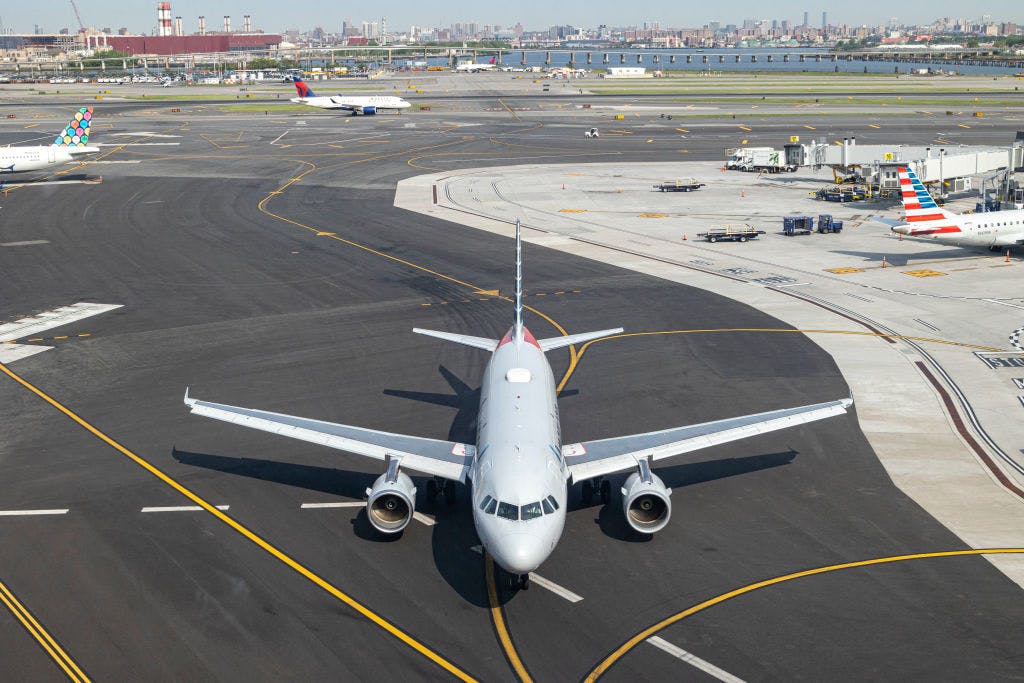Airlines are getting smacked by — you guessed it — tariffs
Shares of airlines from Delta to United are getting pummeled as Trump’s tariffs take effect.
Airline stocks have taken a beating this week as President Donald Trump’s 25% tariffs on goods imported from Canada and Mexico take effect.
Shares of carriers like JetBlue, Delta Air Lines, and United Airlines were all down more than 5% in afternoon trading Tuesday. Manufacturers like Boeing and Airbus (whose CEO recently called tariffs a “lose-lose”) are also down.
Fears that higher ticket prices, production costs, a drop in discretionary spending, and a weakening Canadian dollar could all impact travel have airline investors bracing for rough skies.
What do tariffs have to do with airlines?
Depending on how long tariffs last, the airline manufacturing supply chain could be significantly disrupted. Carriers could start leasing more jets, and an increase in demand for leasing could raise rates. Ultimately, that could bump up ticket prices.
Budget airlines, which operate on tighter margins and have already been struggling in recent years, could get squeezed harder than others.
According to reporting by Skift, a 25% tariff on imported aluminum could hike the production cost of a narrow-body aircraft by up to $2.5 million — though many material contracts are negotiated far in advance and could take years to be reflected in carriers’ bottom lines.
A decline in Canadian visitation to the US is also a factor playing into the tariff sell-off. Canada was the top source of international visitors to the US last year, with 20.4 million visits. If tariffs significantly weaken the Canadian dollar (which hit a one-month low Monday), travel to the US could also get pricier for Canadians. According to the US Travel Association, a 10% decline in Canadian travel could result in $2.1 billion in lost spending.
